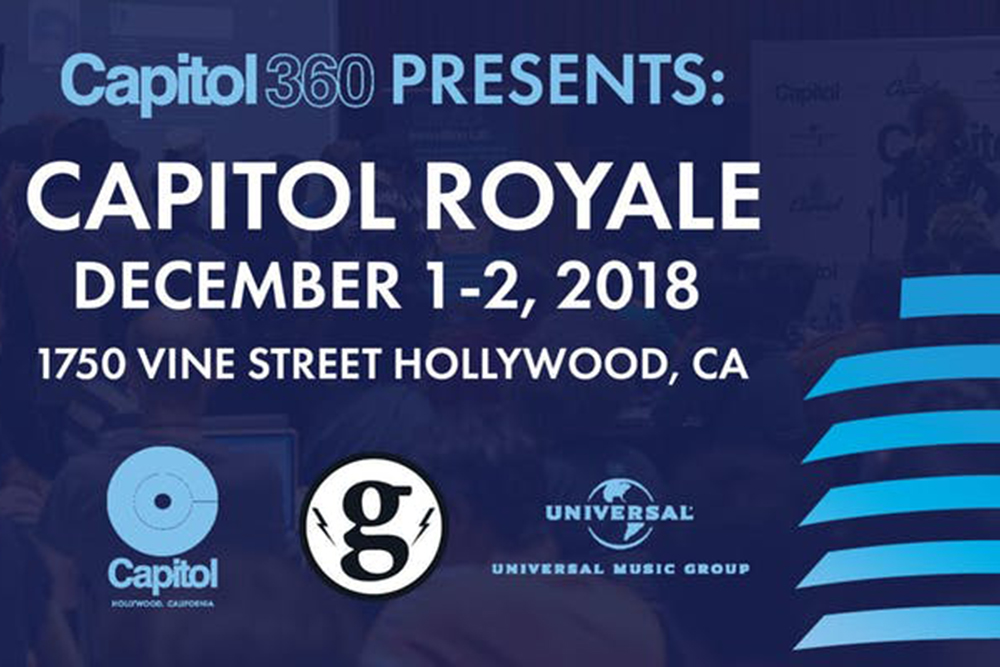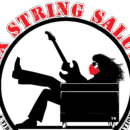Industry veteran Barry DeVorzon launched his career as a songwriter and later segued into publishing... “Only because I didn’t know any better,” he jokes. In 1960 he founded Valiant Records, which scored several hits. One of the label’s standout successes was the ‘60s sunshine pop band The Association. After a deal was inked, the band released “Windy,” which soared to #1 and remains a representation of youth, freedom and innocence. DeVorzon then branched into composition for film and television. Among his credits are the “Theme from S.W.A.T.” and the score of cult classic movie The Warriors. He’s won six Emmys, notably in 1978 for Best Instrumental Arrangement for “Nadia's Theme (The Young and the Restless).”
Cut to the present. DeVorzon now runs MasterWriter, a company that aids songwriters, both in the creation of lyrics and in the protection of their work. MasterWriter’s latest web-based product, Songuard, enables users to upload lyrics or audio files to its servers so that they’re protected from infringement. This comes in at less than a tenth of what it costs to copyright a song formally. In what ways, then, is this better than simply registering songs with the United States Copyright Office? There are two: it’s quick and inexpensive. How inexpensive? At present, it costs $35 to copyright a song formally. Songuard’s service costs $3.95 per song. Sweeter still, there’s no charge to sign up.
MasterWriter was launched in 2003. Initially, it offered an application that helped artists pen lyrics that employed more powerful or evocative words. “As it turns out, it’s a great tool for songwriters,” DeVorzon observes. “And I am putting something back into a profession that’s been very good to me by creating a program that’s an essential collection of tools for songwriters. They need all the help they can get. This is a business where ‘good’ is rarely good enough so you better create the exceptional. We help songwriters do that.”
Conceived originally as a tool solely for songwriters, MasterWriter’s userbase has expanded to include screenwriters, novelists and other such artists. “It’s a great tool for all of them, but it’s still a niche,” DeVorzon admits. “I’m not sure I’m the guy to do it, but I think its destiny is education. It should be on the desktop of every business professional because it’s an amazing tool if you want to communicate or write anything. It gives you that choice of words presented in an easy way that makes it unique. A lot of the information in MasterWriter you can probably find [online] but we have it all in one place.”
Once MasterWriter was firmly established, the Songuard web-based service was introduced. Its purpose is to make it easier for artists to protect their lyrics, melodies and songs in general. “It addresses a real problem that songwriters face,” DeVorzon explains. “There’s what I like to call a ‘clear and present danger’ for them. It’s never been more important to protect yourself. When I was a young songwriter, the business was very different. You took your song to a publisher. There was a contract between you and them and the publisher had the responsibility of getting it placed. In the process, they’d copyright it. That contract and copyright is what protected the song. Today, publishers––for the most part––administer major catalogs or the publishing companies of artists and producers. Except for Nashville, that wonderful relationship between songwriters and publishers is all but gone. It’s now up to the songwriters to get their songs out there.
“Songs get posted on the Internet and millions of people then have access to those lyrics and melodies,” he continues. “On top of that, artists send their work to producers, artists, labels and publishers. It goes everywhere with the hope that it gets noticed and somebody does something with it. I’ll bet that most of those songs aren’t protected. To copyright a song online––the least expensive way––costs $35 for one song with one writer, and this year it’s going up. That’s why I created Songuard. It offers a third-party registration. When you register with us, it costs $3.95 to protect your song. That’s for one writer, two or five.”
As many artists know, a copyright exists as soon as a song is written. “The moment you create something, you have a copyright,” DeVorzon notes. “The only reason you register it is to prove the date of creation. They don’t look at the content or defend it. It’s merely to establish a date of creation. That’s what Songuard does. It’s easy, inexpensive and you can put your head on the pillow at night with peace of mind because you know your song is protected. The problem today is that someone might hear something once or twice [and] six months later think they created it. This is another reason songwriters must have protection.”
Copyrights are vital, of course, in the defense of intellectual property. While they come at a cost, they also offer legal safeguards beyond what Songuard provides. “The difference between Songuard and a copyright is that a copyright gives you certain statutory advantages like damages and injunctive relief if an infringement lawsuit is filed,” DeVorzon explains. “You want that and we certainly advise songwriters to copyright their songs. But while you’re writing and collecting those songs, you can protect them for $3.95. We don’t require a subscription or a membership. You can open an account for free and use it as you see fit. It’s simple to use.”
Once a user submits a song, they’ll receive a date and timestamp as well as an encrypted digital signature. They will then be sent an email that confirms their song’s registration. The file(s) will be stored permanently on Songuard’s secure servers that employ an encrypted hash. It’s clearly a far less expensive alternative to a formal copyright. That’s good news for songwriters who need to save money when, where and however they can.
Contact masterwriter.com, 866-848-8484, info@masterwriter.com












